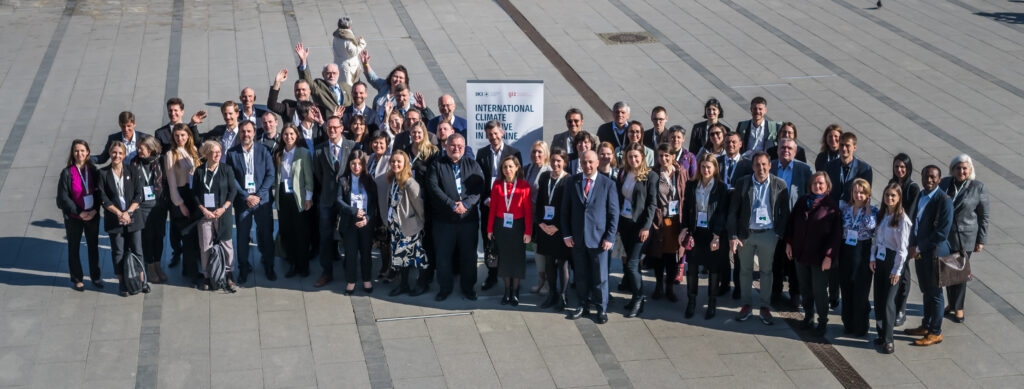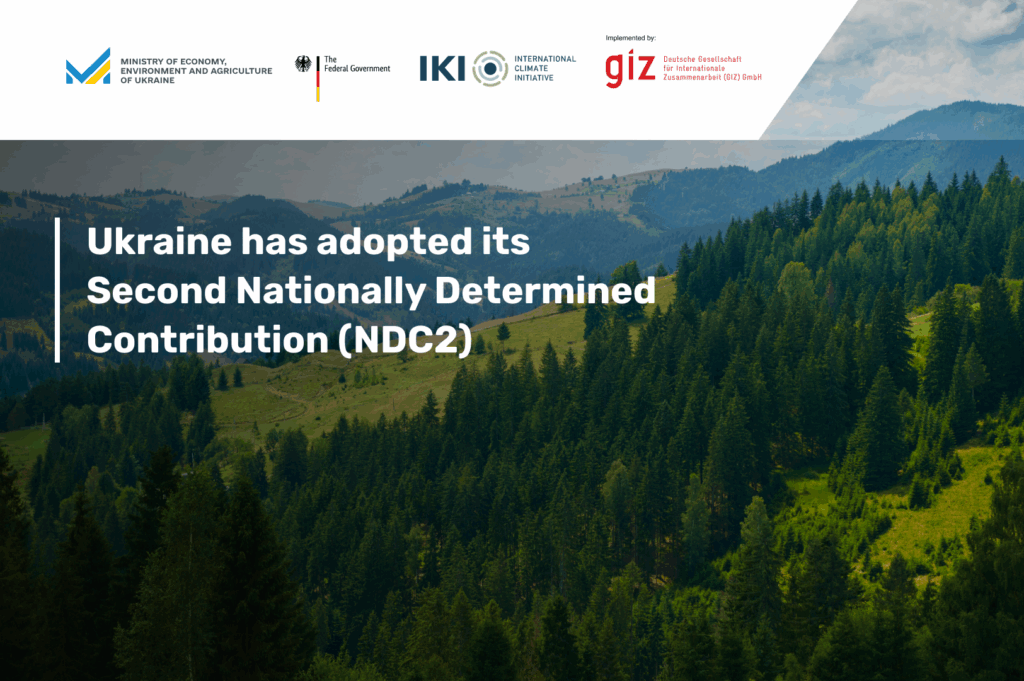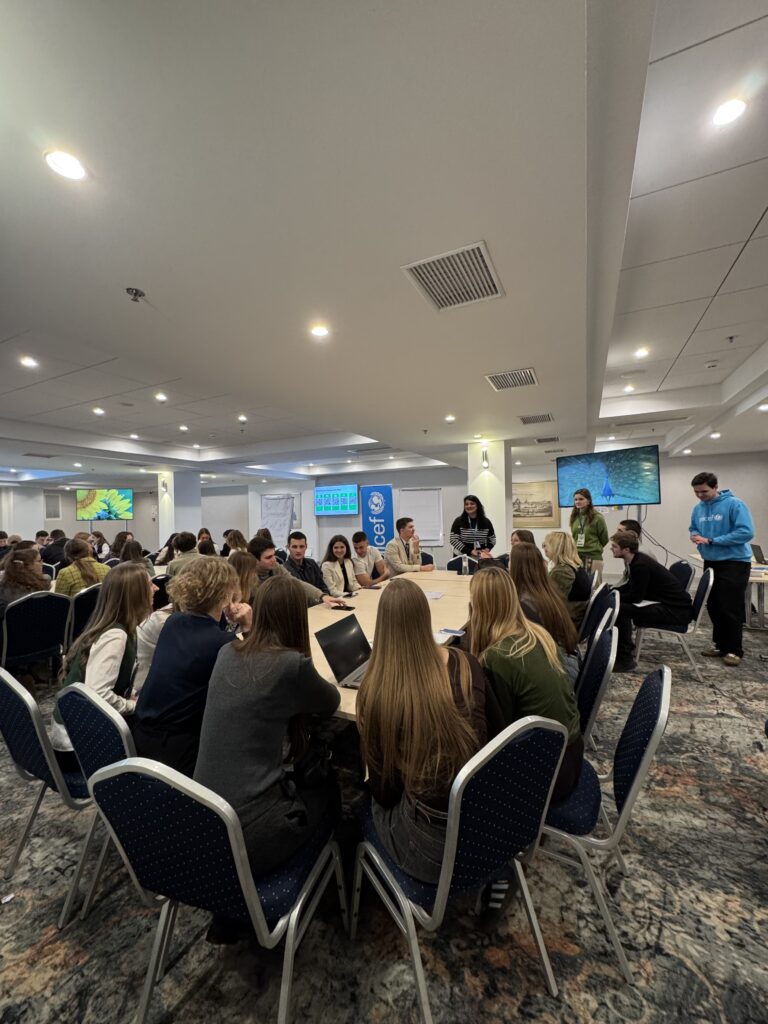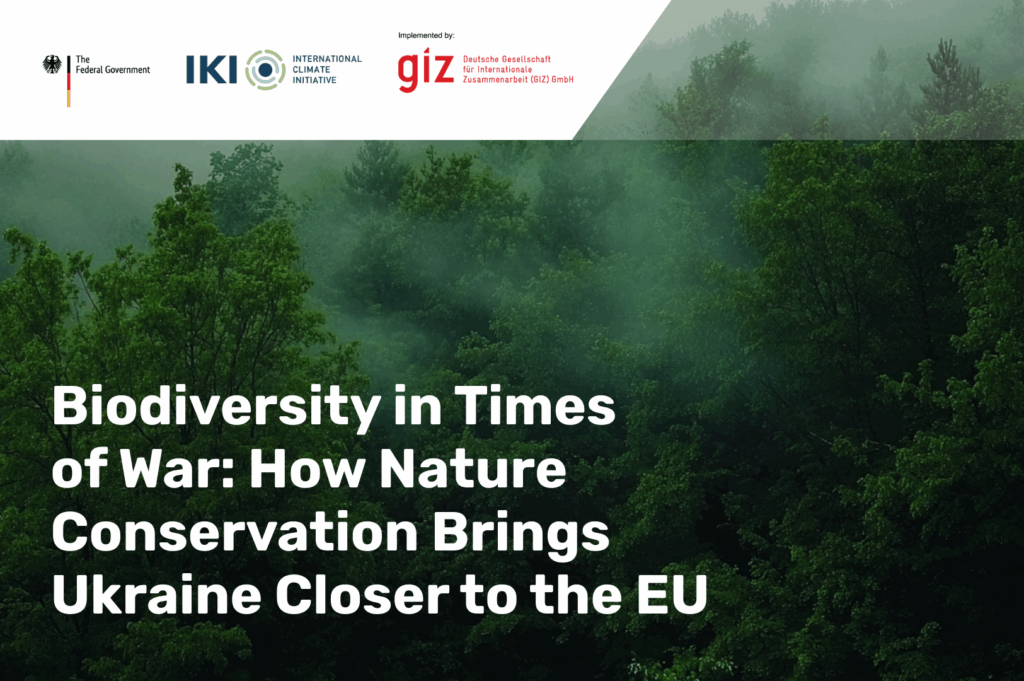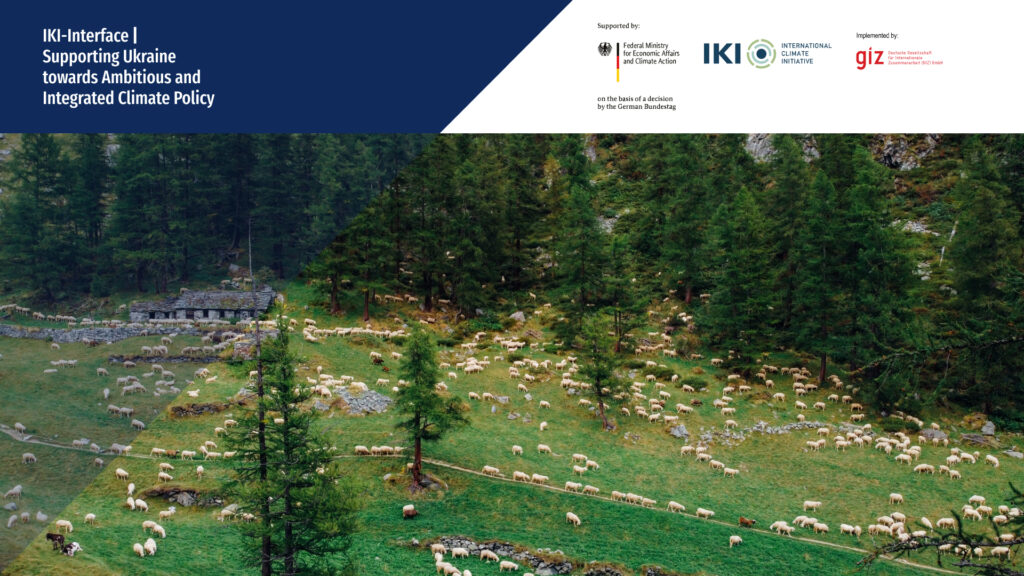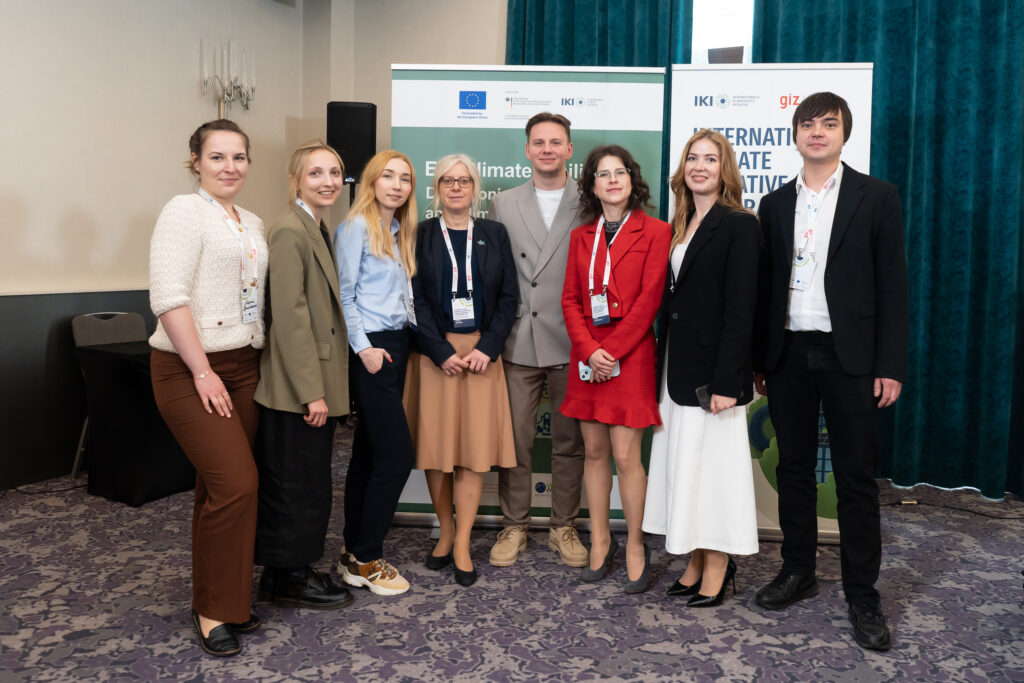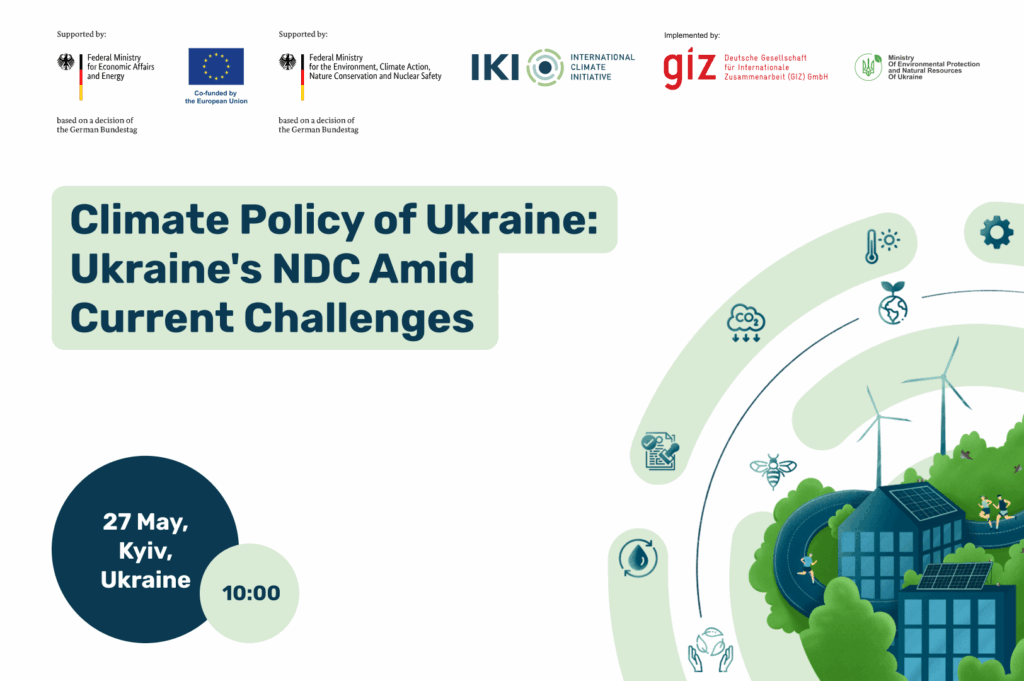The Russian war of aggression has destroyed and damaged forests, land and marine ecosystems, as well as the water supply and wastewater and waste management systems in Ukraine. This impacts human health, biodiversity and the climate.
Despite the war, the Ukrainian Government is taking action to minimise damage and maintain economic stability. Through its green reconstruction plan, Ukraine aims to achieve energy independence while leveraging the opportunities presented by climate- and environmentally friendly reconstruction. The Nationally Determined Contributions (NDCs) of the Paris Agreement of 2021 can no longer serve as an effective framework for guiding current actions.
Objective
Ukraine is significantly reducing its greenhouse gas emissions over the long term. Green reconstruction and development are being promoted to support Ukraine’s transformation into a carbon-neutral, resilient and nature-friendly member of the European Union (EU).
Approach
The project operates at the interface of the German Government’s International Climate Initiative (IKI). To this end, it particularly promotes collaboration between German and Ukrainian decision-makers to develop innovative, cross-sectoral solutions for a future-proof climate- and biodiversity policy in Ukraine.
On behalf of Federal Ministry for the Environment, Nature Conservation, Nuclear Safety and Consumer Protection (BMUKN), the project supports the Ministry of Economy, Environment and Agriculture of Ukraine in establishing a cutting-edge monitoring system. This system will enable Ukraine to collect, evaluate and monitor biodiversity data in alignment with the climate objectives.
The project also promotes knowledge exchange between German and Ukrainian policy-makers. It also supports the Ukrainian Climate Office (UCO) with achieving climate objectives and with updating the NDCs.
